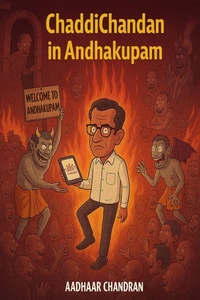The year is 2010. Across India, a new dawn was promised, heralded by the soft, reassuring hum of servers and the sleek, polished gleam of biometric scanners. The air, usually thick with the scent of chai and exhaust fumes, now carried a faint, almost imperceptible tang of ozone - the breath of a new, digital age. Chaddichandan, the architect, a man of quiet conviction and formidable intellect, spoke of a nation unified, of corruption eradicated, of every citizen accounted for, their identities secured by a unique, twelve-digit number: Aadhaar.
His voice, calm and measured, echoed through brightly lit conference halls, the crisp click of his presentation remote a precise counterpoint to his words, promising a future of seamless services, direct benefits, and a transparent government. The vision was compelling: a billion fingerprints, a billion irises, woven into a single, unassailable digital tapestry. In bustling urban centers, young tech enthusiasts, their faces illuminated by the cool blue glow of laptop screens, hailed it as a revolution, a leap into modernity.
They envisioned a cashless society, a paperless bureaucracy, a nation where every transaction was recorded, every identity verified. The scent of fresh coffee and ambition filled their air-conditioned offices, a stark contrast to the dusty fields and crowded markets where the true impact of this digital transformation would be felt. Propaganda posters, vibrant and optimistic, bloomed on every street corner, depicting smiling families effortlessly accessing services, their lives made simpler, better, by the omnipresent symbol of Aadhaar.
The bright, almost saccharine yellows and greens of these posters seemed to hum with an artificial cheer under the relentless midday sun. The promise was alluring, a siren song of efficiency and progress, masking the subtle, insidious shift of power from the individual to the algorithm.
The year is 2010. Across India, a new dawn was promised, heralded by the soft, reassuring hum of servers and the sleek, polished gleam of biometric scanners. The air, usually thick with the scent of chai and exhaust fumes, now carried a faint, almost imperceptible tang of ozone - the breath of a new, digital age. Chaddichandan, the architect, a man of quiet conviction and formidable intellect, spoke of a nation unified, of corruption eradicated, of every citizen accounted for, their identities secured by a unique, twelve-digit number: Aadhaar.
His voice, calm and measured, echoed through brightly lit conference halls, the crisp click of his presentation remote a precise counterpoint to his words, promising a future of seamless services, direct benefits, and a transparent government. The vision was compelling: a billion fingerprints, a billion irises, woven into a single, unassailable digital tapestry. In bustling urban centers, young tech enthusiasts, their faces illuminated by the cool blue glow of laptop screens, hailed it as a revolution, a leap into modernity.
They envisioned a cashless society, a paperless bureaucracy, a nation where every transaction was recorded, every identity verified. The scent of fresh coffee and ambition filled their air-conditioned offices, a stark contrast to the dusty fields and crowded markets where the true impact of this digital transformation would be felt. Propaganda posters, vibrant and optimistic, bloomed on every street corner, depicting smiling families effortlessly accessing services, their lives made simpler, better, by the omnipresent symbol of Aadhaar.
The bright, almost saccharine yellows and greens of these posters seemed to hum with an artificial cheer under the relentless midday sun. The promise was alluring, a siren song of efficiency and progress, masking the subtle, insidious shift of power from the individual to the algorithm.

 , qui est-ce ?
, qui est-ce ?